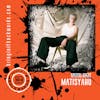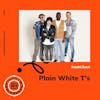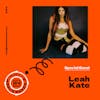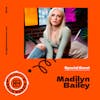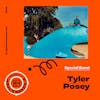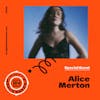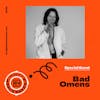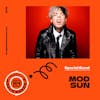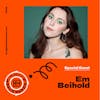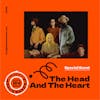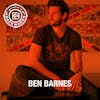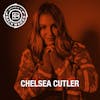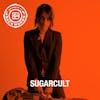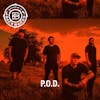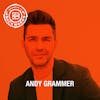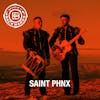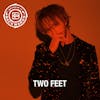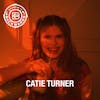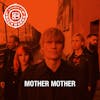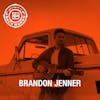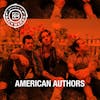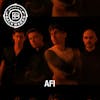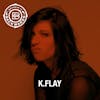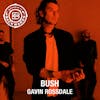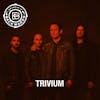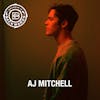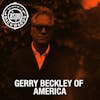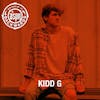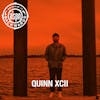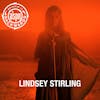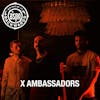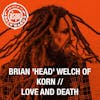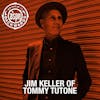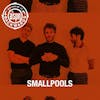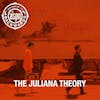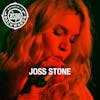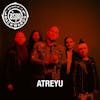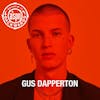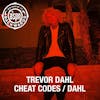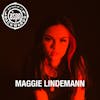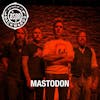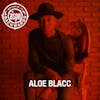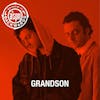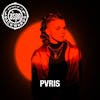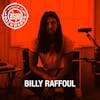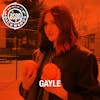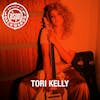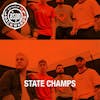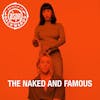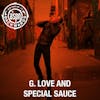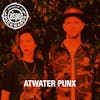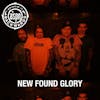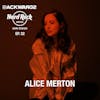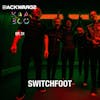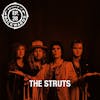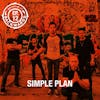Interview with Riley Pearce
We had the pleasure of interviewing Riley Pearce over Zoom video.
An introspective singer-songwriter, Riley Pearce often writes about his difficulty coping with change and his love-hate relationship with nostalgia. With family spread across the...
We had the pleasure of interviewing Riley Pearce over Zoom video.
An introspective singer-songwriter, Riley Pearce often writes about his difficulty coping with change and his love-hate relationship with nostalgia. With family spread across the globe and his own stretches of living in a number of different cities, Riley’s lyrics reflect that all too human need for connection. His honest songwriting and relatable storytelling has resonated both in Australia and overseas, with over 60 million streams to date. An in-demand live touring artist, Riley has sold out headline shows around the world and supported the likes of Lord Huron, Tash Sultana, Lifehouse, The Paper Kitesand Lucy Rose.
For his EP” Love and All That Stuff”, Riley steps out of his comfort zone and showcases a different style with a 5-track collection of love songs. ‘This EP is all about journeying through life alongside someone you love, the ups and downs of a relationship, constantly trying to improve yourself for them, planning a future together, and letting someone eat the last chip because you know they’d appreciate it.’
After a long lockdown in Melbourne, Riley moved back to his hometown of Perth with his long-term girlfriend and their new puppy. Exploring the theme of love properly for the first time was a big step for Riley. “I hope people really connect with the EP, and that they don’t cry too much. And if this EP puts me in the good books with my partner, well that would be a nice bonus.”
We want to hear from you! Please email Tera@BringinitBackwards.com.
www.BringinitBackwards.com
#podcast #interview #bringinbackpod #RileyPearce #LoveAndAllThatStuff #NewMusic #zoom
Listen & Subscribe to BiB
https://www.bringinitbackwards.com/follow/
Follow our podcast on Instagram and Twitter!
https://www.facebook.com/groups/bringinbackpod
We'd love to see you join our BiB Facebook Group.
Hello! Welcome back to bringing it backwards. A podcast where both legendary and rising artists tell their own personal stories of how they achieve stardom. On this episode, we had a chance to hang out with Riley Pierce over zoom video, Riley was born and raised in Perth, and he talks about how he got into music. He grew up in a very musical household. His dad was in an Ozzy Osbourne cover band. He was the guitar player and singer his uncle was a guitar player. He started playing guitar at a very early age. He has a funny story about how he started playing left-handed because he was trying to mirror the guys on TV and then had a guitar teacher a couple of years later. 3 (1m 52s): I mean, he was super young, but he had a guitar teacher a couple of years later when he's really, really trying to learn and go, ah, you know, I think you're right-handed so he ended up certain play right-handed he talked about busking. He would play different farmer's markets. And just on the street to people, he told us a story about his first time in a recording studio. He talked about releasing his massive song, brave and how that song absolutely took off for him and putting out the outside the lines EAP, he ended up recording two full EPS in March of 2020, and then obviously the world shuts down. So at least he had a couple of records to kind of release through the pandemic. But during the pandemic, Riley rented a house on the Southwest coast of Australia, and he went in there and wrote and recorded his whole new album, the water in the rough. 3 (2m 43s): He had a group friends they're recording the record. They shot a little documentary about it. And they're using sounds from the house because it wasn't set up as a recording studio. So they're using sounds from the house and they implemented them into the record, like the gravel of the driveway or the crackling of the fire that they're having at night when they're eating, even tapping on their friend's collarbone that made the record so very, very cool and the beautiful music video he put out as well for the song, keep moving and not to mention and not to mention. Riley's also giving away on his Instagram, his very first guitar, the first guitar he bought with the money he earned from busking. 3 (3m 26s): And this is the guitar he wrote the entire outside the lines EPR. So this is the guitar that he wrote brave on, which is incredible that he's giving this way. I can't believe it, but that's up on his Instagram Riley peer, some music at Riley Pierce music. And you can watch our interview with Riley Pierce on our Facebook page and YouTube channel at bringing it backwards. It would be awesome if you subscribe to our channel like us on Facebook and follow us on Instagram, Twitter, and Tik TOK at bringing back pod. And if you're listening to this on Spotify, apple music, Google podcasts, it would be amazing if you follow us there as well, and hook us up with a five star review. 4 (4m 3s): We'd appreciate your support. If you follow and subscribe to our podcasts, wherever you listen to podcasts, 3 (4m 9s): We're bringing it backwards with Riley Pierce. Hey, what's up Riley? How are you? 5 (4m 16s): I'm 3 (4m 16s): Doing well. I'm doing well. I appreciate you doing this, 5 (4m 19s): But nah, I appreciate it from yours. You're going to hear me. Okay. Yeah. Yeah. Well, we'll wait. He's kind of trapped in here. Doesn't want to be in here, but he he's gonna whimper and cry by the door. We've got a, a five month old inside the house. I'm just in like the little separate studio room we have built out back in. Hey, it's going to be fussy if, if I'm not inside, but he'll also be fussy if he's out here. So he's a very needy dog. 3 (4m 52s): I'll good. I'll get, I love his haircut. 5 (4m 56s): Pretty, pretty ridiculous. 3 (4m 57s): So good. Like the middle part, like I love it. Oh man. Well, I'm Adam and this podcast is about you and your journey and music. And I want to talk to you about the new record and I was just watching the music video that you did for keep moving. Beautiful. It's like a film. 5 (5m 18s): Yeah. It's pretty, pretty special footage. Yeah. It was lucky enough to yeah. Partner with this awesome, awesome ultra marathon runner. And they had some footage of, of a run and the song was all about running. So everything just kind of fitted together really nicely. 3 (5m 34s): Oh yeah. I mean, yeah, she's just, she's running through like nothing. Like there's no one around, it's the most beautiful scenery and like those huge, like those aerial shots and she's like this big and you can kind of see her running and then yeah. It's such a cool video. 5 (5m 49s): Yeah, it's crazy. She was on the most recent season of survivor, the Australian version of survivor as well. 3 (5m 56s): Oh, is that right? 5 (5m 57s): Yeah. So that's 3 (5m 58s): Cool. That's awesome. You still do that show? I haven't dude. I haven't had television like nearly 10 years. Oh, wow. Well again, I appreciate you doing this. So you born and raised. I I'd taken in where, what part of Australia? Sydney. Is that what I read? 5 (6m 15s): Nah, I was, I was born in Melbourne, but I've yeah, I've lived in Perth, which is on the other side of the country. 3 (6m 24s): Totally off man. And not even born in Melbourne. So how long did you live there for 5 (6m 33s): Maybe the first eight years of my life spent a few years of living when, when I was really little in, in the Netherlands, but oh, 3 (6m 40s): Cool. 5 (6m 41s): Then moved back to Perth, moved a bit from my dad's work and, and then kind of settled, settled in person. I was maybe eight and I've pretty much lived here since. 3 (6m 49s): Okay, cool. I did see that you, your dad was a musician, right? He played in cover bands and stuff. 5 (6m 54s): Yeah. I used to play and he played me like an Ozzy rock, cover band. We'd like some other dads from my primary school and 3 (7m 3s): Yeah, 5 (7m 4s): That's pretty good. 3 (7m 5s): Like 5 (7m 7s): He played rhythm guitar and sang and yeah, they said they were pretty good. They'd play it all that, like, not that I went, but they played it all. They're like parents 40th and 50th and then whatnot when they were. Yeah. 3 (7m 19s): That's cool. That is really cool. So you obviously, did you grow up watching him play? 5 (7m 25s): Not too much. Cause at my bedtime it's usually before they'd play or whatnot, but yeah, there was always like music in the house and, and same as I, my uncle played guitar and, and a bunch of bands too. So yeah, it was, it was, music was always in the house. 3 (7m 40s): Okay. When did you start playing music then? 5 (7m 43s): I, well, I picked up guitar like maybe when I was about five or six or something, but I was, I picked it up. I did I'm right-handed but I picked up the guitar left-handed because I thought like, if I was watching someone on TV 3 (7m 56s): And like why then? 5 (7m 58s): Yeah, 3 (7m 58s): Exactly. Got it. Okay. And 5 (7m 60s): So I did that for like the first two years when I was in Melbourne. And then when we moved over, the guitar teacher I had at school saw me play and it was like, he does everything else. Right. Handed. I think I should swap him over. So we didn't 3 (8m 13s): Oh wow. By electric guitar and everything. So you can match the guy or not like you in that. 5 (8m 20s): Yeah. I think I had a right-handed guitar, but the strings, we just put it upside down. Yeah. And it was like one of those yeah. Classical guitar. So it didn't really have like the pick guard or like a, a certain cutaway of any work area, so. 3 (8m 34s): Oh, okay. He just strung it the other way. That's like having your dad be a guitar player. He he's just like, oh man, he just, he just doing it. Left-handed let's just go with it. 5 (8m 42s): Yeah. I think my, my dad's actually left-handed with a few things too. Maybe he thought that my paper. Yeah. 3 (8m 49s): Okay. That's interesting. So you, how old were you when you started playing guitar? I mean, left-handed, I guess when did that start? How old were you? 5 (8m 57s): Maybe like five or six. So really young? 3 (8m 59s): Yeah. Okay. So it wasn't like you're 14 or something. And then you got to like two years in, you had to switch over. Okay. 5 (9m 6s): No, not at all. Not at all. 3 (9m 9s): So you started, you said you had a guitar teacher in primary school? 5 (9m 13s): Yeah. Yeah. Just like teaching me chords and things like that was very much, yeah. 3 (9m 19s): Not like in school is just like a guy like around town or something. 5 (9m 22s): No, it was actually in school there. Yeah. It was, I had someone there. Yeah. That, you know, had like, yeah, just like a resident guitar teacher that would come in a few days a week and teach the kids who wanted to 3 (9m 36s): That's really cool. Very, very cool. So you, well, when do you start writing songs and playing aside from learning the guitar? 5 (9m 45s): Yeah. I started writing, I was doing black street street performing a sort of get at like farmer's markets and things like that and, and loved. Yeah. I really loved that. Like I love like playing songs, my own versions of songs and whatnot and yeah, from there, I just wanted to start writing my own songs and, and seeing if I could like slip them into my set or just, and see if anyone would notice them. And then the more I did that, the more I like really got involved in like trying to figure out like the next steps of recording and playing a gig and like open mic nights and stuff like that. And trying to, like, I was getting a good response to some of my songs. 5 (10m 27s): So I was like, oh, like what's like each time I was like, what's the next step? What's the next step? So I was really like trying to soak in like everything. And so I was probably maybe like 16 or 17 when I started writing my own songs. And, and then maybe recording, maybe when I was 18 or 19 or something, it was my first like recording in a studio experience and yeah, from there, I just kind of like loved the whole process of it and figuring out how everything worked. And it was like, you'd get these like straight, I don't know if you have them straight press things where it's like, might be like a, a magazine at the front of like a music record store or something. Yeah. 3 (11m 6s): It has all the, had the heat 5 (11m 7s): Gigs and stuff and yeah. Are, they're not as popular I think now, but 3 (11m 12s): I know with the internet and everything, that kind of bums me out. It's like, I so enjoy having like the physical thing, like had so much cooler to like open a magazine and then see like, oh, you know, Riley's playing at the blah, blah, blah, blah, blah. Like, that's something that you'd want to keep if it's just like some internet page it's like, cool. But I mean, how much cooler would it be? I said, the thing was, I see like enrolling stuff. Like people having like articles on rolling stone. I'm like, that's like, don't get me wrong. That's the coolest thing ever. But I imagine it having the physical rolling stone magazine, you know what I mean? It's just like a totally different level. I feel like it's getting lost. 5 (11m 48s): Yeah. And for me too, I was like, when I was starting out, I like if I open those things and I'd see all the Google listings in the town and like the venues that I knew, like my kind of music was played at. And if I saw like some names that I didn't know, then I would like highlight them and then I'd like, write them down and listen, I'd go check out their music. And I would just like be trying to soak in like, as much of the different music in, in my area that was going on and whatnot to try and think. 3 (12m 14s): I feel like not a lot of people will do that anymore. I mean, even, you know, like to find new artists and like actively go and watch them play and really see what they're doing. I think that's awesome. 5 (12m 26s): Yeah. Well, it was, it was, it felt like a chore by the end of it, but it was like, it was like, ah, you re you really had to like, I wasn't going to every game, but it was like, I was like, at least like looking up what they sounded like and be like, ah, th that'd be great to play a show with or like yeah. And trying to, yeah, really like immerse myself in the same 3 (12m 48s): <inaudible> well, so you said you were playing with like farmer's markets kind of doing cover gigs street performing. And then when, when did you realize, like when you started sprinkling your own songs, is that when you started seeing a response from people and being like, oh, like, this is kind of like, what was that? When did you start getting validation that like you were doing what you should be doing as far as like songwriting and people responding to it? 5 (13m 13s): Well, yeah, I was kind of playing some shows and people were enjoying the song. Like I, I, yeah, from, from writing a few songs, I then started like playing a few songwriter nights or whatnot around town, I think from that. Yeah. P people, I got like some good responses from it and started thinking, all right, well, like maybe the next step is to record some of the songs. And I really wanted something. Like, I really, at that point when I was doing a lot of basking, I loved like artists, like passenger who had, had done a lot of that stuff. And, and I always loved the like discovery element of discovering a new artist. And like, if you discover someone on the street playing, like, that's like an even better thing. 5 (13m 55s): Cause it's like, oh, like I've just stumbled upon this like absolutely amazing artists when I was just going around running errands or something like that. Like it's, it's, it's a pretty cool thing. So, and I wanted to like give something back to the people who were always at the farmer's markets or something like that, dropping some coins in and, and yeah, so I started recording and I wanted to create a CD that I could give to them and kind of how to have a snowball started. 3 (14m 24s): And was that the first EPA you put out? Was that the one from 2016 and outside of the lines album? Or was it 5 (14m 31s): This one was 3 (14m 32s): Okay. I was going to say 5 (14m 34s): You 3 (14m 34s): Hit it out of the park on the first record. 5 (14m 38s): Yeah. I wish now the first one I put out was one good. It was like a good way a fools, which had a bunch of songs that, yeah. Like I, I liked the songs. I just, it was very like, so raw to the whole recording studio. I'd never, never been in there before or had any idea. So I felt like I didn't really get to control things the way I wanted to. I, I almost like handed the reigns over to the guy who was producing because I, I didn't know what I wanted. I didn't know how everything works. So the sound that I got at the end w whilst I was like, amazed to just hold a CD with my silence as you are. 5 (15m 18s): And it's like the first thing you do. Yeah. I think, I think I was very much after that. I was like, you know what, like that was a great experience, but I know exactly how I want to do things now. And, and I've. Yeah. And so I've just started trying to be way more like intentional with, with the recording and, and going into it, having done a bit more research and, and yeah. And building the SOPs beforehand, rather than just get arrived into the studio with four songs, and then the acoustic guitar that I didn't think much of any other elements. 3 (15m 50s): Right. I mean, you go in there, you don't know. You're like, all I know is this is how the song goes and I played on the guitar and I shook it. So that's a role, like, was it intimidating going to the studio the first time? Or were you just excited? 5 (16m 2s): Nah, massively intimidating. Yeah. Yeah. Just that like fear of the unknown and knowing that all these other people are way more important to you and when you're starting out and you see like, oh man, like, it costs so much for a, a day in a studio. Like you're like want to make the most of my time and this person must know what they're doing because they're so expensive sort of thing. So you're like, yeah, you're really, and it's like, you rock up there and there's the guy, just mountains and mountains of gear. So you're like, oh man, I have no idea what anything does. So it just like, yes, it can be quite intimidating the first time. 3 (16m 38s): Sure. Sure. And then when you've finished that city and you had the city where you just playing more shows around your hometown. 5 (16m 44s): Yeah. I did like a launch for that CD and that went really well. And, and then I just started playing more shows. I tried to do a little like to her ovaries, to Melbourne and yeah. And then just work towards the next songs. And that's when things really kind of started to take off a bit. I think that, yeah, the outside the lines EAP and the first song of that, that I put out was a song called brave. And that really helped to like, get things moving with my career. And yeah. And from there, it was, 3 (17m 16s): So when that, when you put out brave, was that like, I'm just looking at the numbers via spot to find it's like, you know, upwards of 37 million plays, which just like blows my mind and I'm showing you it's crazy. Yeah. With something like that, like tell me when that, how that started, like when you put it out and like, how does the ball start rolling? 5 (17m 38s): Yeah. Well, I put that song out. I didn't have like any management or any, I think I might've just gotten like a booking agent or something and, but I didn't have anyone else in my team. Like I was sending that song. I had like a list of all these like blogs that I'd seen, like other like folk artists gets like featured on or whatnot. So I was messaging them being like, Hey, like I know you've written about this artist. Like, I've just released this song. If you, if you like it, can you share it or whatnot. And, and then, yeah. And then I think I got one called it was a booklet indie shuffle or something like that. Who's Tandy protection. Yeah. Just 3 (18m 19s): So good. Sorry, I don't want to interrupt you, but it's like a wig man. 5 (18m 26s): Like it's like naturally falls that way. It's like, it's ridiculous. But he looks at a phobia of like dope, 3 (18m 32s): I would say. Yeah. It's like, have you seen that movie blades of glory with, yeah. That's his hair reminds me. He has like, that comb it's like made out of like an elephant tusk or something like that. So you got, you got on, you got on a blog, you're just the blogs and then indie shuffle, you said was the one. 5 (18m 57s): Yeah, I think they share that. And that like, that kind of, it wasn't like, there was never like one massive like moment where the song just kind of, it was more like some small stepping stones, like got a nice blog features and maybe a few other small ones. And then this Austrian Jew do, I did like a remix of it that went kind of well, and then like the original got added to like a good playlist on Spotify and then like a few sinks and stuff like that. So there was like a few small things like here and there that over the course of time, like really helped that song. Yeah. 3 (19m 29s): And then do you, do you put out the outside lines EEP, like after the moment of that song is going like, like, or did you put the whole EPL and then that one just kind of made like, started to kind of do more because there's other songs that I record that have a ton of streams too, obviously, but that one far leaks, it exceeds a bit, 5 (19m 50s): But I mean, 3 (19m 51s): It's not like the other ones to have, like, you know, a couple of thousand plays. It's like there's handful of songs on the record that have well over a million plays. So it's not like the whole thing didn't do anything except for that one, because you'll see that with people it's like one song is like, and then the other ones are like, you know, not nearly close. I mean, obviously the record was well received and same with everything you did after the fact, but what was it like you put that out. It starts doing well. And then you're like, okay, that's awesome. Let's put the whole EDP out. And then that obviously continues to doing well. 5 (20m 21s): Well, yeah, like I said, like, I was like, I didn't have a manager or anything. So I was like figuring things out for myself. So I put the song out first that brave was the first one. I was the AP. And then I maybe put another song out maybe three months later. And then the AP came out like three months after that, but I didn't have a plan. I didn't like, know what to do when the song was getting a bit attraction. I like, I was just like, all right, cool. Maybe, maybe I'll send it like to more people. Maybe I'll just like, now, now I need to like, think about the next batch of songs I'm going to record or so, yeah. 3 (20m 54s): Triple J a thing. And you're in your PR, like, was that something you attempted to put the song out to? 5 (20m 60s): Yeah, I never really got that much attraction for my music on triple J until maybe like a few releases after, after that interest CP. Yeah. And I think a song called misplaced was like the first one that got rotation there. And then I've more recently, I've had a song called bottle it up, get quite a bit of play on, on triple J, but yeah, not for, not for brave or any of that stuff. It all kind of mostly came through like just like, yeah, the streaming platforms and yeah, just not non radio world. 3 (21m 35s): That's cool. That's interesting. So what did you get management after the song was taking off eventually assembling a team after that? 5 (21m 43s): Probably not until maybe like two years after the song was released. Did I get like a manager? Yeah, I was just getting, I just, I had like a booking agent for a bit, but I kind of enjoyed doing it all myself. And then now that a song was doing well, like I enjoyed like learning all the different aspects of how management work, but I was like starting to have different discussions with people and thinking like, yeah, who I'd want to work with, but nothing really, like no one came banging at the door super quickly and then, 3 (22m 12s): Okay. So after that record as well, it's just like, okay, well, did you have a manager when your second year for you came out or was it still the same thing? 5 (22m 20s): Yeah, yeah. Yeah. I hadn't managed to when my second APA cat. 3 (22m 24s): Okay. So when eat, that was eastbound that's the second one. And then what changed with that record side from having the, obviously the management? Was it like a different approach when you went in the studio or a big moment from that record? 5 (22m 39s): Yeah, I had a producer like Hayden counted. I like S an artist in his own. Right. That's like amazing, amazing songwriter, like amazing production wise. And I really wanted him to like, well originally actually I asked, well, I dunno if I asked him more, but I just had the idea of working on brave with him. And 3 (23m 1s): Then, 5 (23m 2s): Yeah, I don't know. I don't know if I asked him at any might've been, he might've just been busy working on his own stuff or something like that, but anyway, I can't recall. And so I got into the next batch of songs and the eastbound PP and yeah. So I always wanted to work with him. And then, yeah, this was my chance I thought, so we recorded those songs and yeah. Stoked with how it turned out. 3 (23m 24s): Yeah. And just real quickly kind of go through the rest of the planning to the and CP. So tell me just a quick milestone from that. Or was there a big change, a big moment that happened from there? 5 (23m 36s): Yeah, that was more like, I really wanted like the songs to hold. Like I think the previous AP was very more like a bit more production focused and this one, I was like, I want the songs to really stand more acoustically. So there's a bit more of a raw sound in those ones. 3 (23m 52s): Yeah. And then you put out the acoustic EPE, right? 5 (23m 54s): Yeah. 3 (23m 55s): The old songs too, that you just read me recorded acoustic. 5 (23m 58s): Yeah. 3 (23m 59s): Yeah. And so, cause I know your new record from what I'm reading about, the new record is you rented the house and I really want to talk because I'm super interested in like this whole process, but you also put a record out in 2021 and 2020 or 2021 love and all that stuff. 5 (24m 16s): Yeah. So I put two APS out. I was pretty 3 (24m 19s): Angry and sleep it off. Yeah. Like those two records, where did those come in play versus the, the EAP that, or that record that you're releasing like a end of the week. 5 (24m 32s): So I was really lucky timing wise that I recorded the two APS, those two ones. Maybe I can sleep it off and love and all that stuff in like early March, 20, 20, right before like the pandemic, I shut everything down. So I was like, 3 (24m 49s): So you recorded both. Did you know you're going to split them up into two VPs? 5 (24m 52s): Yeah. I, I knew from the start that we're going to be split up. So I just had like this, I think originally I was going to do it as an album, but there just as I was like picking the songs, I was like, nah, they're too like that. They kind of fall into two concepts. So I was like, I'm going to put them out as two separate DPS. And so, yeah, I was super lucky that I had recorded like 12 songs before everything shut down. And, and so that worked out really well for me and yeah. And those sorts of songs. Yeah. They were just like, I was just a different chapter in my life. I think those, those ones versus the new album, the new album is very much like it's got its own story and, and sound and yeah, 3 (25m 35s): That's interesting. Okay. So you had both of those and you're like, okay, well I know I have these records. So I have, because the world shuts down and everyone's like, oh, you know, what's going to happen. At least you kind of had like a, a bit of stuff to work with. You can be like, okay, I'm going to put this CPE out and then I'll have some time and then I can put this EPA out. But when do you decide, like, you know, I just wrote two EPS in March and recorded them all at let's do another record. Like you must be constantly writing. 5 (26m 3s): Yeah. Well, I mean, that's the thing, when the wheelchair diamond, you can't play any shows, you kind of have to do the only other side that, that I know is riding. So, and it's weird too. Like it's a weird place to be in where you're like, so often you're like, you're, you're touring and writing about experiences of traveling, traveling around and playing shows and stuff like that. And then all of that's like taken away and you're just like stuck inside an apartment. And you're like, how do I write these songs about things I'm experiencing? And like in a world where I can't like, do my 3 (26m 29s): Spirits, anything. 5 (26m 30s): Yeah, exactly. So, yeah, I was just like riding heaps and I was, yeah. 3 (26m 36s): Where you just pulling from like, like past life experience to like, how do you even navigate that? Are you watching TV and kind of like pulling ideas from that? Like, like where are you getting inspiration from? 5 (26m 50s): Yeah. Well the, the album was very much centered around like me and my partner. We made the move from Perth to Melbourne at the end of 2019 to, to like w w we've landed on, like with built, built it up for ages and planned for it. And then, yeah, we were thinking we might do that three or four years over there. And I like, most of the music scene is over in the east coast. So I was like, all right, cool. Like my career going really well now, I think I can like head over there and try and like get a bit more of a leg up and trying to establish myself a bit more. And she was studying nutrition and her uni was over there. So she was mostly doing it remotely from person. So she wanted to finish that off over there. And so it made sense for us to go do that. 5 (27m 31s): And then we kind of moved over at the end of 2019 and the pandemic hit. And we were just like, all right, cool. Like, Melvin's like taught, like, I guess it's, it's said to be one of the most livable cities in the world. And then like we've moved there and everything shuts down and we know this thing's kind of like hanging around for ages and kind of takes, takes away the appeal of Melbourne in a lot of ways. And especially when you're like, yeah, living in an apartment for a bit. And so we lived there for a year through like quite a full on lockdown and, and it was quite hard for my partner who is like, from the moment we got there, she was working and studying. Full-time both from home and didn't know many other people like in Melbourne going through the same thing or didn't have a chance to make friends and stuff like that. 5 (28m 19s): So it was quite hard on her. So the whole album is like this, like kind of the first half is this buildup to go on this massive adventure. And then the second half is like things somewhat like falling apart and how it kind of like dealt with that and then eventually deciding to move back to Perth. So it was like a kind of main things running through this, this album. So I definitely had, yeah, I always had stuff to write about and I'm always writing a lot more and always like thinking of different things by this. So many random thoughts into my head that I want to write songs about that that's half the challenge is trying to figure out ways to do that. 3 (29m 2s): Sure. Before we did that earth, before we really started, you said that there's a five month old sleeping in the other room. Is that, did you, did you have a kid over the course of the last year or two? 5 (29m 12s): Yeah, we did in a 3 (29m 15s): Moment to congratulations. 5 (29m 17s): Thanks. Thanks. Yeah. 3 (29m 19s): It took quite a bit of stress throughout the pandemic as well. 5 (29m 22s): Yeah, well that was, yeah, five months ago. It was kind of more, a bit more on the end of like the kind of, 3 (29m 28s): And then nine months prior to that. Right. Like, you know, looking at about a year and nearly a year and a half. So 5 (29m 36s): Yeah. So, but no, it's, it's, it's been, we're both pretty chill and Australia is like pretty lucky in terms of how the pandemics affected them compared to the rest of the world. So we definitely consider ourselves lucky. 3 (29m 49s): Okay. Yeah. It, congratulations. That's so awesome. Well, tell me about, okay. So when do you decide what you guys, what rented a house or something? You, you, you, you rented an area and just went, okay, we're going to move here. We're going to spend some time here and we're gonna, I'm going to write and record a record. Is that what happened? 5 (30m 5s): Yeah. So when I did the landing songs, EAP, I, I recorded that with a guy called Garrett Cato. Who's also an amazing musician and awesome Blake and w he lives on the other side of the country. So I moved across there for a week or two, and we just recorded it. And it was great. Like, I loved the idea of like, just like putting your life on hold and going and recording and being in the new location and all of that, like landscape. And just that feeling of being somewhere new creates this like amazing excitement. And then you can like channel that all into the, to the record. And I wanted to do that. And all the songs had a real, like wintery kind of feel to them. 5 (30m 47s): So it was like a, like the Southwest of Western Australia is an amazing place. I'm not sure if you've ever been, but it's now like some really nice, like rugged beachy landscapes. And there's a lot of like surf coasts down there. And 3 (31m 2s): There's a, like a pretty big city. Right. Kind of at the bottom there. W what is that one? Or am I tripping 5 (31m 9s): Margaret river? 3 (31m 12s): I don't remember. I can get somebody that was a psychedelic porn crumpets there from Saying like, he was funny just cause he was like, they were open and like all of the rest of Australia wasn't for a long time. Cause there was a small percentage of people there. I can't remember the town, but sorry. 5 (31m 31s): Yeah, no, that's so good. Yeah. Yeah. There's a lot of various small towns on the bottom of, 3 (31m 38s): Okay. So was that kind of where you're at? Or you said you're on the west coast? 5 (31m 42s): Yeah. We're on the west coast and like the Southwest there's like Margaret river and all those kinds of areas 3 (31m 47s): And 5 (31m 49s): Yeah, it was great. Like I love like everyone was in the house, it was like part of the recording and like we'd have different musos come and go. And it was a really lovely, like, and we also had like a, a lovely couple who are recording, like the documentary for like the making of the, of the album. And yeah, it was just so nice not having to do like the commute back and forth to the studio every day. And everyone just like living in the house and, and immersing yourself in the landscaping and yeah. Having to deal with like the house, wasn't like a recording studio. It was, it was a house. So like we had to deal with like the wind coming through the chimney and stuff that we stuffed full of cushions and, and there's like different like things that we had to just like deal with. 5 (32m 34s): And like the house obviously has like a certain sound to it too. So that just means that everything on the AP, sorry, every kind of the album like has this like cohesive sound to it that like it's. Yeah. And it's like, it's just really captured that at time and place 3 (32m 52s): That's so yeah. You kind of described it in a quote. I saw like having, like, you can hear the floorboards and like the gravel of the driveway, like that's all, probably just things that are happening as you guys are, what recording and record, right. 5 (33m 5s): Yeah. And we like also lent into it too. So we were like, you know what, like the opening song is a song called kindling, which has some, like, we often like a few of the nights that we were there. We had like a fire going outside and we ate dinner outside around the fire. And so we've like recorded some of the fire crackling and then just light load that into the track and like other stuff like that. We yeah. Where it was just like a lot of those like tactile, like different sounds that you hear in a record that like, yeah. It just like sets it apart a bit. Or like, you, you, you don't, you might not hear it on the first, like three times that you listened to the song, but then the fourth time you're like, was that a fire like 3 (33m 45s): That little Easter egg deal. Okay. And what's the story behind this? Your friends collarbone and the taping of your friends call it, break the collarbone. 5 (33m 56s): No, that is rightfully called my lack of a column. I was still very much attached to their buddy. So yeah. Cedric and melody, who are the wonderful couple that like recorded documentary at the end of maybe like the second last day of filming or something. We were all like, I think we maybe had like a wine or something like that. And, and we were playing some games and maybe eating by the fire. It was a very late night because we were trying to cram everything left in and they were, they were like, I think Cedric, who is, yeah, he is a funny guy who came up to me. He's like, Hey Riley, like, do you think I could maybe like record something like on the album, just like a sound just to like put it in some way. 5 (34m 37s): And I was like, all right. What, like, what's the sound that you want to do? And then he's like, ah, I'll have to think about it. And then he came back again and melody, I don't know why we're talking about that. Melody was like, oh my, my colon, like she's she always had, had the skill where she thought she had like a very cool sounding Columbo, which is just such an absurd thing to, like 3 (34m 59s): I heard my collarbones think is crazy Alvin. 5 (35m 4s): And so, and it sounded amazing. So there's a song on stone is the song that her collarbone is like this like kind of like dull, like pulse, like tapping thing. 3 (35m 15s): Oh yeah. 5 (35m 16s): And it sounds really cool. Like it, we were, we like everyone kinda like laughed when she said that. And then like, she, she taps it and then like Andy and all that look at each other and we're like, this sounds really cool. It sounds like, like this pulse just like kind of sitting through the song and it was really nice. 3 (35m 34s): So you add that's so cool. So you add that just the, 5 (35m 39s): Yeah, it's pretty much just her tapping her collarbone in different spots. And then we found a good loop that we liked and then just kept that going. 3 (35m 46s): That's amazing. That is so cool. And then you, you ha I'm curious real quick about this documentary. So there's going to be a documentary that kind of goes along with the record of the making of the record. 5 (35m 58s): Yeah. Yeah. It's only a, like a 10 minute, little like behind the same thing of the making. Yeah. The process of the recording and just like some yeah. Clips of everyone down south. And it's a nice little, I watched it the other day. It's a nice little like nostalgia trip to, to hold on to and revisit it every now and then. Yeah. 3 (36m 17s): That's cool. Are you going to release that with the record? 5 (36m 20s): Yeah, I think I might release it maybe a few weeks after the record comes out that yeah. Def definitely want everyone to, to experience that. 3 (36m 29s): That's so cool, man. Well, I appreciate you taking time to hang out with me today. Riley. It's been awesome. And I came on for the record. He comes out, I think what a week or so a week from tomorrow, maybe. Very cool. And you have some shows coming up like, and you're giving away a guitar. Did I say you're giving away a guitar in your Instagram? 5 (36m 49s): Yeah, I don't have it here. It's in a case inside, but yeah, it's actually the first guitar that I bought with my own busking money when I, 3 (36m 59s): It away. 5 (37m 0s): Yeah. It's a bright, brave on it. Or I write a bunch of songs on that, on that guitar. Yeah. I love, I love the guitar. It's great. But it's one of those things where I think like, I think my time with that guitar has moved on and I think it would be great for someone else to, to maybe, yeah. I mean, I hope the person that wins it is a song like that. Cause it would be nice for them to like maybe get some songs out of it. 3 (37m 25s): Yeah. Wow. What a coup I mean, I can't believe you're giving away that guitar. I figured you were like, and then I got this, whatever, you know, at the store this way, but the fact that you're giving away your actual guitar that you wrote these songs on that's. Wow. That's cool. 5 (37m 41s): Yeah. Well, yeah. I mean, it's weird. Cause I feel like I'm actually a sentimental person, but now I could just think it's time for 3 (37m 49s): <inaudible>. Are you going to say, yeah, how did then, how did you, how does somebody win in? Like how are you going to choose that? You just got a pre-saved this album. 5 (38m 0s): Yeah. If you presented the album or if you pre-order the vinyl, then you get like 10 extra entries. So yeah, just people doing that and, and then I'll pick, pick someone at random. 3 (38m 11s): That's crazy. That's so cool, man. Well, I hope it goes to a good home. 5 (38m 15s): Yeah, 3 (38m 17s): Right on. Well, I, again, I appreciate your time. I have one more quick question. Do you have any advice for aspiring artists? 5 (38m 26s): Yeah. Just to, just to write heaps, like I think it, it all comes back to like music. It can be, it could like, there's so much information out there. So easy to be like, I dunno, torn in different directions. I think just focusing on the songs and writing and just work on songs and like focus on the things you can control is a big thing for me. And it took me a while to learn, but that's, that's probably the advice I would have.
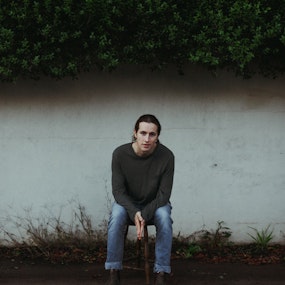
Riley Pearce
Artist
There's an ease to the music Riley Pearce makes. That's testament to how effortlessly he became a songwriter. Watching his Dad in cover bands inspired him to pick up the guitar. By 17, he was busking at local farmer's markets—playing covers but sneaking in a few original folky compositions about what he saw around him or the relationships he had formed.
Not surprisingly, nature occupies a sizable piece of the artist’s musical DNA. For his latest recordings (Nettwerk Records), Riley rented a house on the southwest coast of Australia. "I wanted to let the sounds of the house and the environment filter in," explains Riley. If you listen closely, you can hear the sounds of floorboards, the house’s gravel driveway, mallets thumped on a couch, the metronomic tapping of a friend’s collar bone, the crackling of a fire and more. Part empathetic meditation, Riley’s music possesses a depth of experience delivered through wafting melodies, thoughtfully blended found sounds and quietly introspective lyrics.
Featured Episodes
Here are some great episodes to start with. Or, check out episodes by genre.























